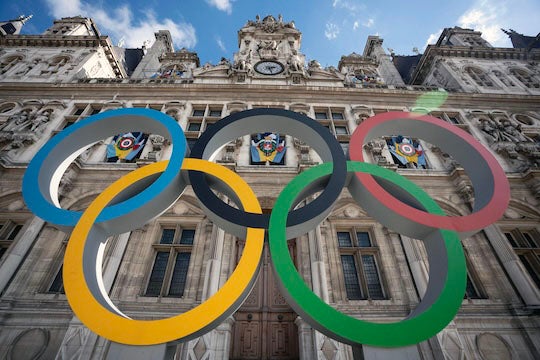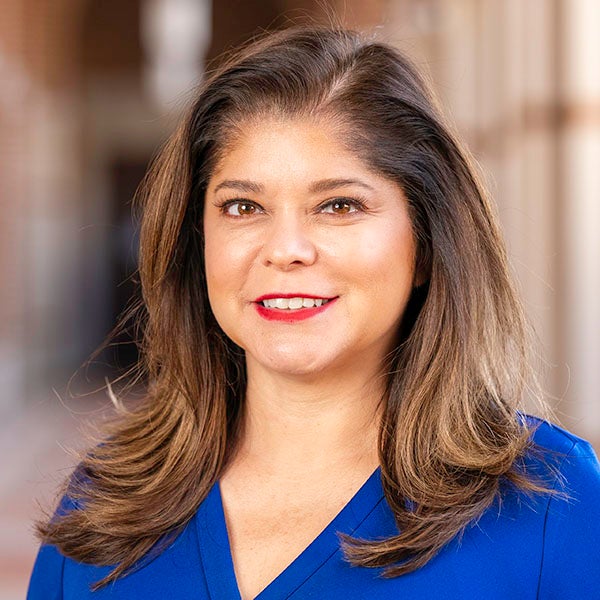
Rice experts available to discuss variety of Olympic-related topics on 2024 Paris Games
Rice experts available to discuss variety of Olympic-related topics on 2024 Paris Games

The world’s attention will be fixed on Paris as athletes from over 200 countries are set to compete in the 2024 Summer Olympics from July 26 to Aug. 11. Experts from Rice University in Houston are available to discuss various Olympic-related topics with the media.
Competing at a high level
Former Rice student-athlete Funmi Jimoh, who represented the U.S. in the long jump at the 2008 Beijing Olympics and competed in three World Athletics Championships, can address the dedication required, including intense training and mental preparation, to compete at the Olympic Games.
“A tremendous amount of time and effort from both the athlete and the athlete’s support team is needed to reach and compete in the Olympics,” said Jimoh, who earlier this year returned to Rice to serve as the director of administration in the Department of Athletics. “An unwavering passion and desire to better your best and a tremendous amount of resiliency are also key.”
Amanda Perkins-Ball, assistant teaching professor and sports medicine adviser of kinesiology at Rice and performance consultant for Olympians and USA Track & Field athletes, can offer insights into the mental preparation for Olympic competition and overcoming nerves.
“Athletes dedicate countless hours to intense physical and mental training in their quest for the Olympics,” Perkins-Ball said. “Creating a mental game plan for preparation, competition and recovery helps them to welcome challenges, conquer fear and perform when it matters most. After all, the mind is an athlete’s strongest muscle.”
Rice women’s diving coach and three-time U.S. Olympian, Gabi Chereches, is also available to discuss qualifying for and competing in the Olympics.
Artificial intelligence and cybersecurity
Paris 2024 is preparing to face an unprecedented challenge in terms of cybersecurity. Several groups pose significant threats including organized crime and activists. Anshumali Shrivastava, an associate professor of computer science, electrical and computer engineering and statistics, is an expert in artificial intelligence (AI) and its role in countering cybersecurity threats.
“Cybercriminals are employing increasingly sophisticated methods to enhance their capabilities,” Shrivastava said. “The spread of AI and other new technologies poses a serious threat to businesses and public life.”
Challenges from heat and humidity
Europe is bracing for another summer of record-breaking heat. Combined with high humidity, the environment is set to present significant challenges for athletes competing in the Paris Games. Sylvia Dee, assistant professor of Earth, environmental and planetary sciences and civil and environmental engineering, sheds light on how these conditions can create dangerous situations where the human body struggles to cool itself.
“Paris has seen several extreme heat waves over the past 10 years, and this summer promises to be the hottest on record in Europe and globally,” Dee said.
Political issues at the Olympic Games
The Olympic Games, at times, have been as political as they have been competitive, including the ancient Greek truces, the politically charged atmosphere of the 1936 Berlin Games and boycotts at the 1980 Moscow and the 1984 Los Angeles Games. In Paris, the off-field issues will again be in the spotlight.
Kristian Coates Ulrichsen is available to discuss the political dynamics that have shaped the Olympics over the years and continue today. The fellow for the Middle East at Rice’s Baker Institute for Public Policy is an expert on the intersection of sports and politics.
“In recent years, there has been a shift in where the Olympic Games are held,” Ulrichsen said. “Fewer stakeholders in democratic settings have been willing or able to secure local buy-in for hosting these events, which has led to an increase in sports mega-events taking place in emerging powers and authoritarian states.”
Business issues surrounding the 2024 Games
Tom Stallings, a professor in the practice of sport management, is available to discuss business topics related to the Olympics. Before joining the faculty at Rice in 2007, Stallings enjoyed a 15-year career in professional sports sales. His expertise includes cause marketing, value-added packaging and sales maximization.
In addition, Carrie Potter, lecturer in sport management, is available to discuss sport finance and business, especially concerning female Olympians. With her experience as a financial and business adviser, including current and retired professional athletes, Potter provides a deep understanding of the economic aspects affecting high-level competitors. Before launching the Carrie Potter Group in 2006, she was vice president of PMG Sports and Entertainment in Washington, D.C. Potter created and teaches a course in sport finance at Rice.
Paris Olympic Games’ carbon footprint
Paris 2024 is aiming to align with the objectives of the Paris Agreement by halving the carbon footprint of the Olympic Games compared to previous editions. Matteo Pasquali, the A.J. Hartsook Professor of Chemical and Biomolecular Engineering, professor of chemistry and materials science and nanoengineering and director of Rice’s Carbon Hub, can discuss Paris’ commitment to hosting a more responsible Games.
“Paris’ goal is an ambitious one,” Pasquali said. “But meeting these ambitious decarbonization goals is tricky because often emissions are merely shifted elsewhere.”
Breaking makes its Olympic debut
Breaking, commonly known as breakdancing, will debut on the Olympic schedule at the 2024 Paris Games. Anatolia Vick-Kregel, assistant director of fitness and wellness, can speak about the sport’s appeal, athleticism involved, potential injuries and training necessary to prevent those injuries.
“Breaking combines self-expression, creativity and fitness, which sets this explosive sport apart from many others,” Vick-Kregel said. “Having a good foundation and routine in strength training, conditioning and mobility is paramount to preventing injuries.”
Nutrition for elite athletes
Roberta Anding, kinesiology lecturer of nutrition and health sciences, can speak about the unique nutrition and hydration needs of Olympic athletes.
“Sports dietitians are uniquely trained to prepare for all possibilities that impact athlete nutrition, including heat waves, religious and cultural restrictions, food allergies and chronic medical conditions,” Anding said.
Technological advancements in training gear
Raudel Avila, assistant professor of mechanical engineering, can discuss advancements in wearable technology and high-performance training gear, including advanced and smart materials and equipment for Olympic athletes.
“From improved energy return in running footwear to advanced aerodynamics in cycling or skinlike wearables for biomarker tracking, engineering analysis and simulations play a critical role in understanding how new technology and materials continue to push the boundaries in sports performance,” Avila said.
To schedule an interview with any of the experts, contact Chris Stipes, executive director of news and media relations, at chris.stipes@rice.edu; Marcy de Luna, media relations specialist, at marcy.deluna@rice.edu; or Andrew Bell, media relations specialist, at andrew.bell@rice.edu.





0 Response to "Rice experts available to discuss variety of Olympic-related topics on 2024 Paris Games"
Post a Comment